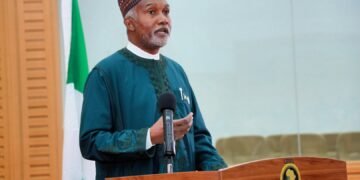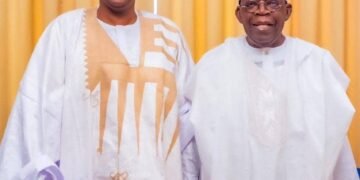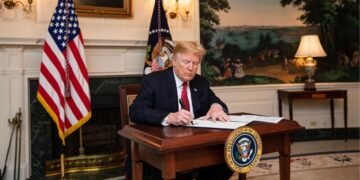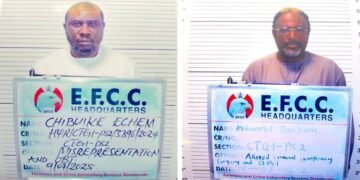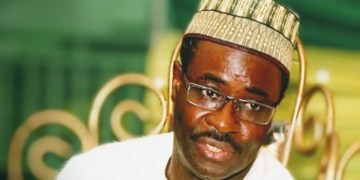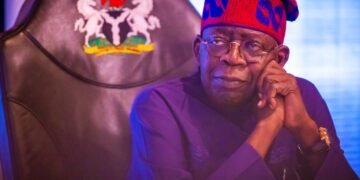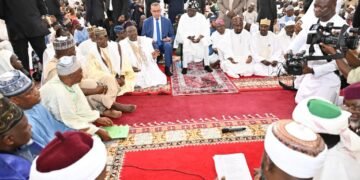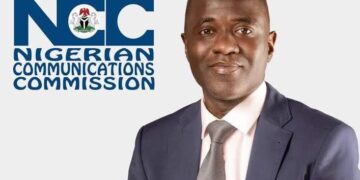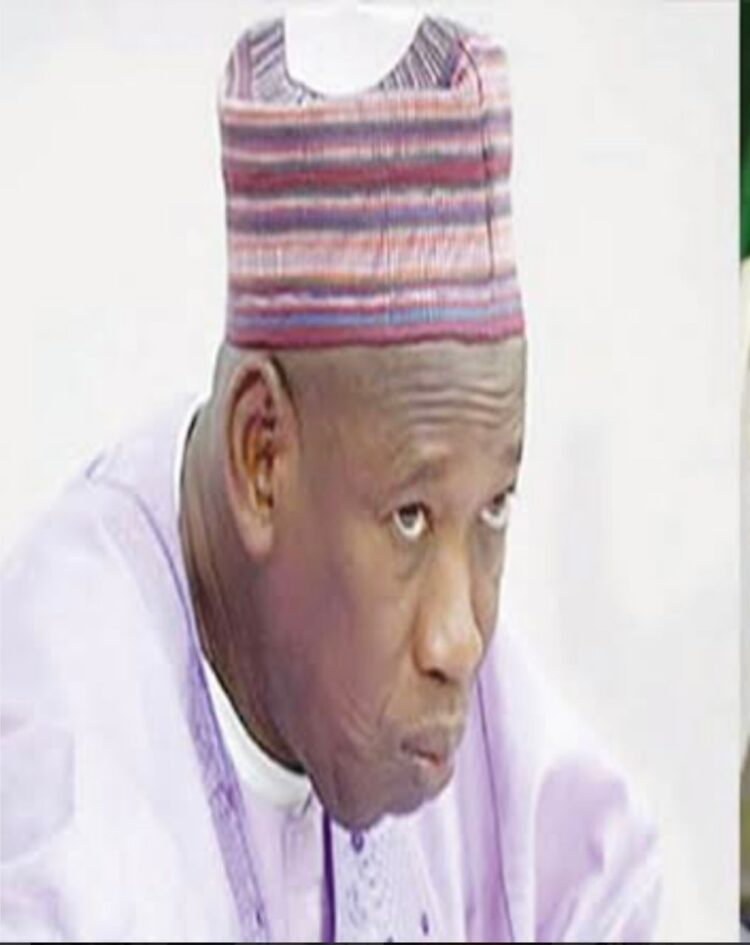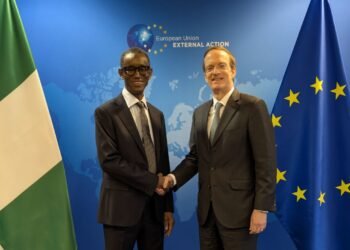By Dr. Danlami Shehu – Writing from Abuja
Introduction
Nigeria’s ruling party, the All Progressives Congress (APC), is once again in the eye of the storm—not for achievements in governance or policy, but for what insiders and youth coalitions describe as “the most brazen abuse of internal democracy and public trust in its history.” At the center of the controversy is the party’s National Chairman, Dr. Abdullahi Umar Ganduje, who now faces growing allegations of corruption, cronyism, and financial misconduct.
Anambra’s “Political Heist”
The APC gubernatorial primary in Anambra State has been widely denounced as a “political heist.” Seven aspirants—including Prince Nicholas Ukachukwu, Prof. Obiora Okonkwo, Valentine Ozigbo, and Chief Paul Chukwuma—entered the race with expectations of a fair contest. Instead, the process descended into a scandal marked by allegations of bribery, manipulation, and betrayal.
Multiple sources claim Ganduje, through close allies including his son, demanded large sums of money and property from aspirants in exchange for promised support—only to award the party ticket to the highest bidder. A senior APC figure, speaking on condition of anonymity, described the exercise as a “bazaar of deceit,” where integrity and grassroots support were sacrificed for cash. The resulting fallout has deepened internal divisions and intensified calls for reform.
The ₦2 Billion Summit Scandal
The APC National Summit held on May 22, 2025—intended to showcase party unity—has instead triggered a new controversy. Allegedly sponsored by a London-based donor via Ganduje ally Lawan Funtuwa, ₦2 billion was earmarked to fund logistics and stipends for grassroots attendees. However, no attendee reportedly received any support.
Instead, expenses were allegedly inflated to justify the diversion of funds. Despite the substantial donation, Ganduje reportedly went on to solicit additional contributions from APC governors and ministers under the pretext of “summit logistics.” A particularly glaring example: identification tags were billed at ₦380 million, allegedly for high-security printing in Lagos. Investigations revealed they were actually produced in Wuse, Abuja, for less than ₦200,000. The scandal has prompted widespread demands for an independent audit of party finances.
Echoes of Past Scandals
Ganduje’s current predicament revives memories of earlier controversies. During his tenure as Governor of Kano State, he was embroiled in a viral video scandal allegedly showing him receiving dollar bribes—claims he continues to deny. In 2024, the Economic and Financial Crimes Commission (EFCC) filed charges against him over the alleged misappropriation of ₦57.4 billion. His former Commissioner for Local Government, Murtala Sule Garo, also faces a ₦2.8 billion embezzlement case. Investigators allege that both men used public funds to acquire luxury properties in Nigeria and overseas.
Internal Revolt and Legitimacy Crisis
Within the APC, discontent is intensifying. Youth groups, reform-minded members, and senior stakeholders are calling for accountability and warning that party resources must not be treated as personal assets by its leaders. “Ganduje’s leadership is a national embarrassment,” said a youth leader from the Northwest. “He has weaponized the party in Kano for personal gain and driven away dedicated members.”
His emergence as National Chairman is also under scrutiny. Many party loyalists argue that his appointment lacked transparency and circumvented a democratic selection process. Key figures, such as Kano APC Chairman Abdullahi Abbas, are accused of enabling a culture of factionalism and diminishing public trust.
Tinubu’s Strategic Dilemma
As the APC’s image continues to erode, President Bola Ahmed Tinubu faces a defining choice. With the 2027 elections approaching, analysts warn that Ganduje’s continued leadership could further fracture the party, alienate critical blocs, and hand the moral advantage to opposition parties. Tinubu—who ran on the promise of Renewed Hope—must now decide whether to stand by a politically embattled ally or take decisive action to protect the integrity and future of his party.
Conclusion
The APC stands at a turning point. The growing chorus for transparency and reform demands immediate action. Unless the party confronts the rot within its leadership and restores internal democracy, it risks crumbling under the weight of impunity and public distrust.

